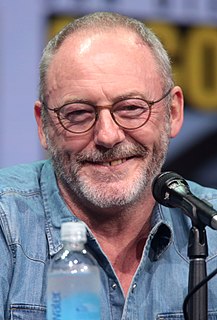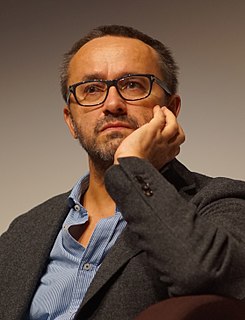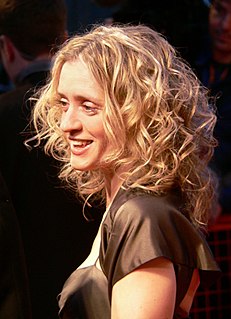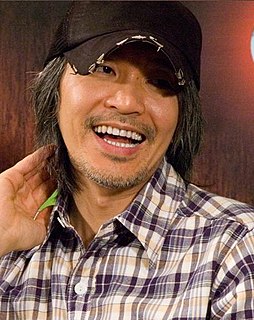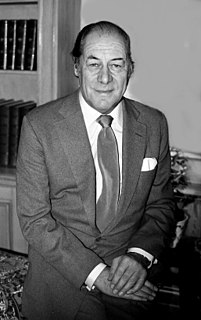A Quote by Malcolm McDowell
I am a professional actor and I don't go about moralizing about what the character does. Otherwise, seriously, why be an actor? You're not making some kind of social statement. That's not what actors do. They may inadvertently do it, but it's because of the script, not the acting.
Related Quotes
I don't want to take shots at professional actors, because obviously the great ones are great. But I do think that given the kind of stories I've been telling in my films, it's hard for me to imagine how professional actors would have done better. And it's easy for me to imagine how they would have done worse. Because I think a lot of what an actor is trained to do and a lot of what an actor's instincts point toward is clarification, is always making it clear what's happening in the story, how the character fits into the scene, what the character wants.
My story about becoming an actor is a completely non-romantic one. I became an actor because my parents were actors, and it seemed like a very... I knew I was going to act all my life, but I didn't know that I was going to be a professional actor. I thought I was just going to work as an actor every now and then.
When you're studying drama, when you're a young actor, there are simple rules about acting. "Why am I here? What prevents me from leaving? What am I trying to get? How do I hide something?" So when you're making a film like Abel's movie, you want to be thinking about those things all the time. And you wanna be armed with those things, and you hope the other actors you're working with have the same understanding of drama and scene and acting. Sometimes it works and sometimes it doesn't.
Actors can be very precious about their work and their scenes, but I think good actors have a strong understanding of narrative and are very often not as precious about that stuff. They just can't be because they understand what makes for a better film, and that it's the job of the actor to work toward that, and then if you want you can go to acting class or workshops. But making movies is not workshops.
No one is really a method actor, everyone has their way of going about it, preparing for it, but method is preparation, it's what you do to prepare. So my method is to read the script. Some actors' method is to read the script a hundred times and in the doing of it, to immerse themselves in as much of the reality as possible. Me, I believe strictly in acting. If I am out of breath, I'm out of breath. I ain't running nowhere.
Some actors come to casting and ask me, "Didn't you see my previous roles?" We do not work with actors like this. Their previous roles do not matter; I need the actual work with an actor in this particular character that has been written in our script. What matters is flexibility, believability and efficiency of an actor.
Most people assume because I'm an actor that's all I know about and care about, I'm actually a camera geek and a film geek. I grew up making short films the same time I was acting. For me, it's a motion picture, not a play. I'm just as interested in what the camera department is doing and world building through costume design and production design as I am in acting. I think all good directors do that whether they're an actor or not.
When I was an actor in some movies a long time ago, I was so curious about all the camera movements - why is the camera placed here, and why does it move like this? And why the set and the background, the color? It's a lot of questions for me to ask, because I was so interested, not only in acting, but also the whole process of filmmaking.
Acting is bad acting if the actor himself gets emotional in the act of making the audience cry. The object is to make the audience cry, but not cry yourself. The emotion has to be inside the actor, not outside. If you stand there weeping and wailing, all your emotions will go down your shirt and nothing will go out to your audience. Audience control is really about the actor
When you go for something because you're curious about it, you get psyched up about the chance of getting into it. It's like an actor meets a role, and you slip into that body and see what happens, to experience certain conditions, to adopt a certain character. Even shooting is a study of the character. I think both the character and the actor, and eventually the filmmaker - myself - are finding a way to accept their environment and being accepted and feel comfortable of themselves.







